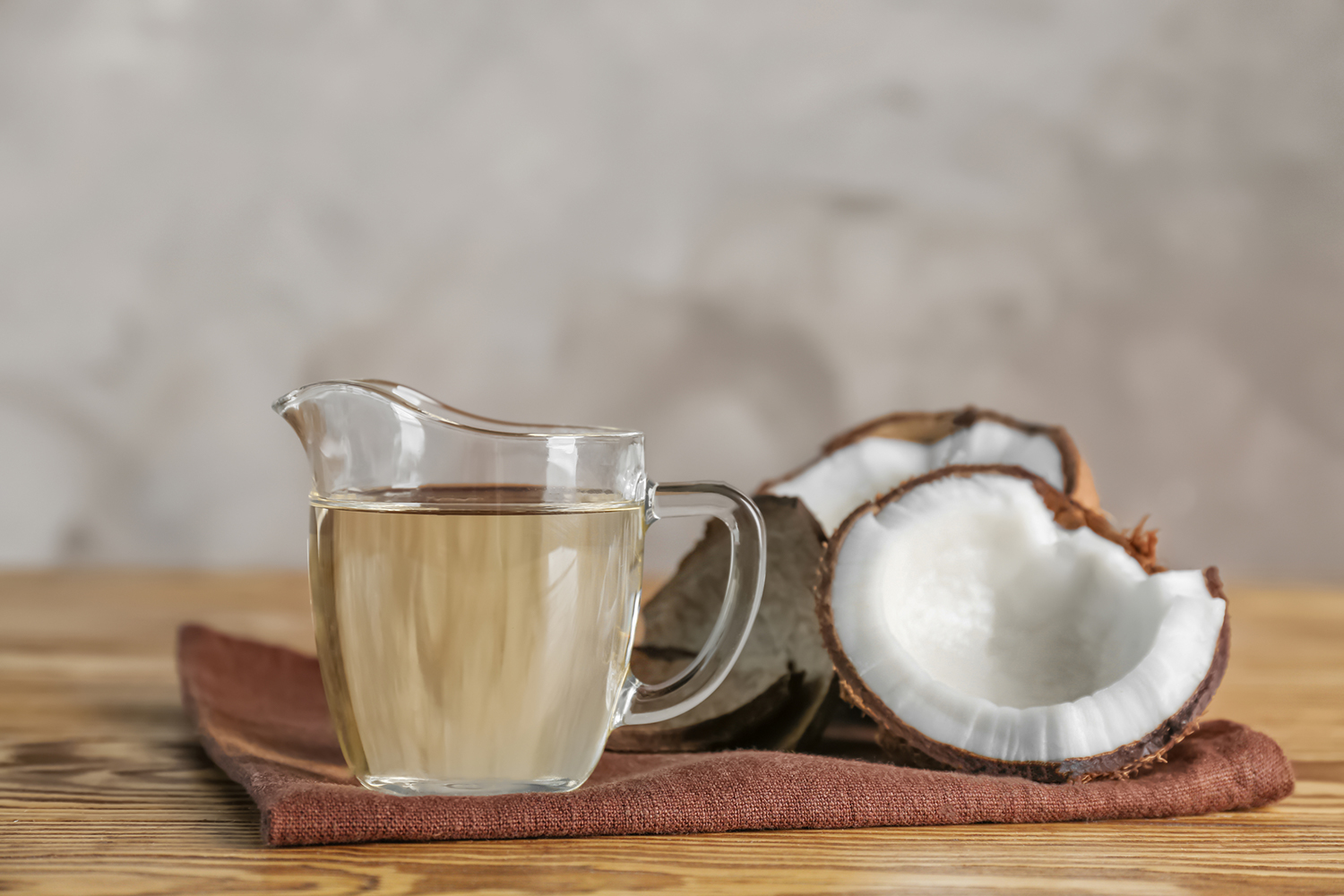MCT (medium-chain triglyceride) oil is all the rage these days because of its metabolism-boosting, weight-loss promoting tendencies.
What's a Good Source of MCT Oil?
Palm kernel oil and some dairy products are rich sources of MCT oil, but more than half of the fat in coconut oil comes from MCT.
MCT Oil: A Functional Food
“MCT oil is classified as a functional food—meaning it has a health benefit beyond the nutrients it provides,” explains Ashley Ranaldi, an ACE-certified health coach.
“It’s used in bulletproof coffee and is popular with the ketogenic diet and intermittent fasting.”
How Does MCT Oil Work?
Unlike long-chain triglycerides found in avocados, nuts, and olive oil, MCT oil contains shorter chains that are more easily digested. Because shorter triglycerides do not need to be broken down the way longer-chain fats do, they can be used as an immediate source of energy.
“The oil goes straight to the liver and produces ketones so our bodies burn fat for fuel instead of carbohydrates,” explains Ranaldi.
MCT oil has also been shown to stimulate the release of peptide YY and leptin, two hormones that help us feel full and can aid in weight loss.
Supporters of MCT oil claim it can stimulate the growth of good bacteria in the gut, which can help promote weight loss.
MCT for Heart Health
Weight loss is one of the biggest factors for preventing heart disease.
Another is keeping cholesterol in check. In one small study:
- Two dozen overweight men took a combination of MCT oil, flaxseed oil, and phytosterols for 29 days and lowered their total cholesterol by 12.5 percent.
- When olive oil was used instead, the men’s cholesterol dropped by only 4.7 percent.
MCT oil can also help reduce C-reactive protein (CRP), an inflammatory marker that increases the risk of heart disease.
In another study, about 100 healthy people ages 50 to 75 were randomly assigned to consume 50 grams daily of either:
- extra-virgin coconut oil (a predominately saturated fat)
- extra-virgin olive oil (a predominately monounsaturated fat)
- unsalted butter
Results:
- Those consuming the MCT-rich coconut oil experienced a significant increase in HDL (good cholesterol).
- The butter eaters found their LDL level significantly increased after the four-week trial.
- No significant LDL increase occurred for those assigned to consume the olive oil or the coconut oil.
Some researchers believe larger, longer-term human studies are still needed to better understand MCT oil and its potential benefits for heart disease.
Using MCT Oil
-
In Cooking
While MCT oil offers benefits, it is high in calories and should be used as a replacement for other oils, not as an add-on.
-
Supplementation
A couple of tablespoons as a supplement may help you manage your weight.




